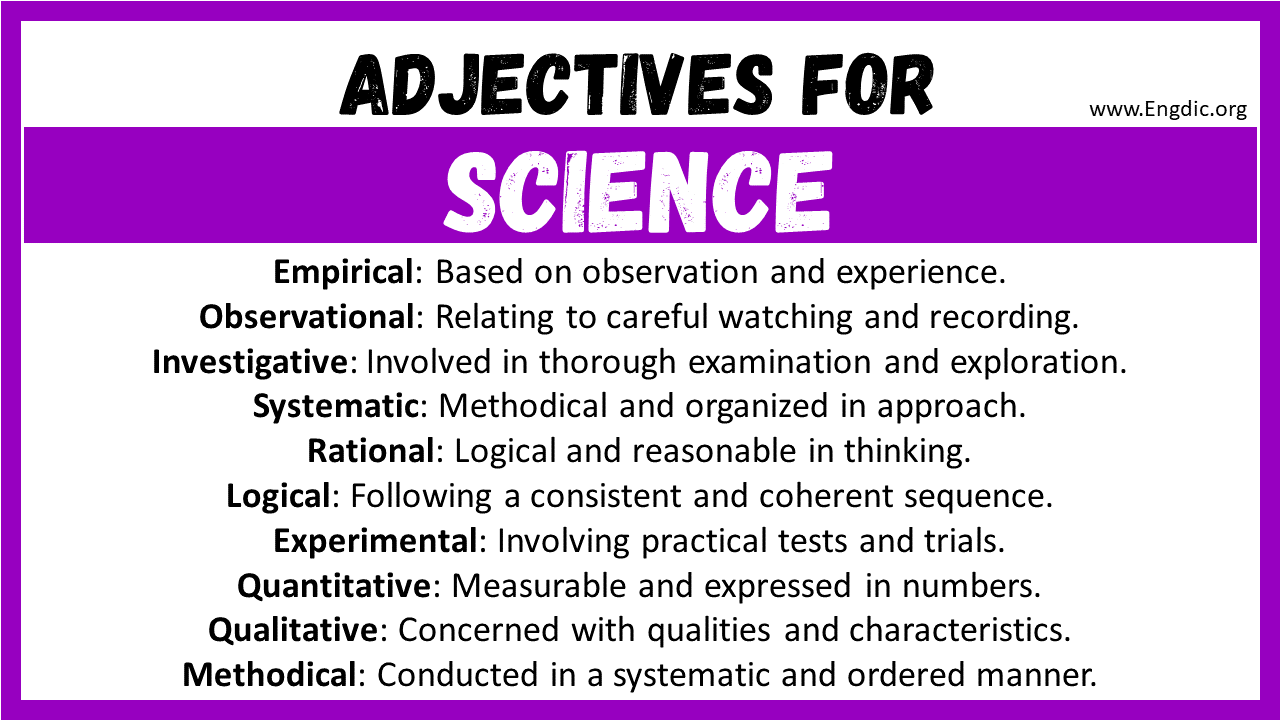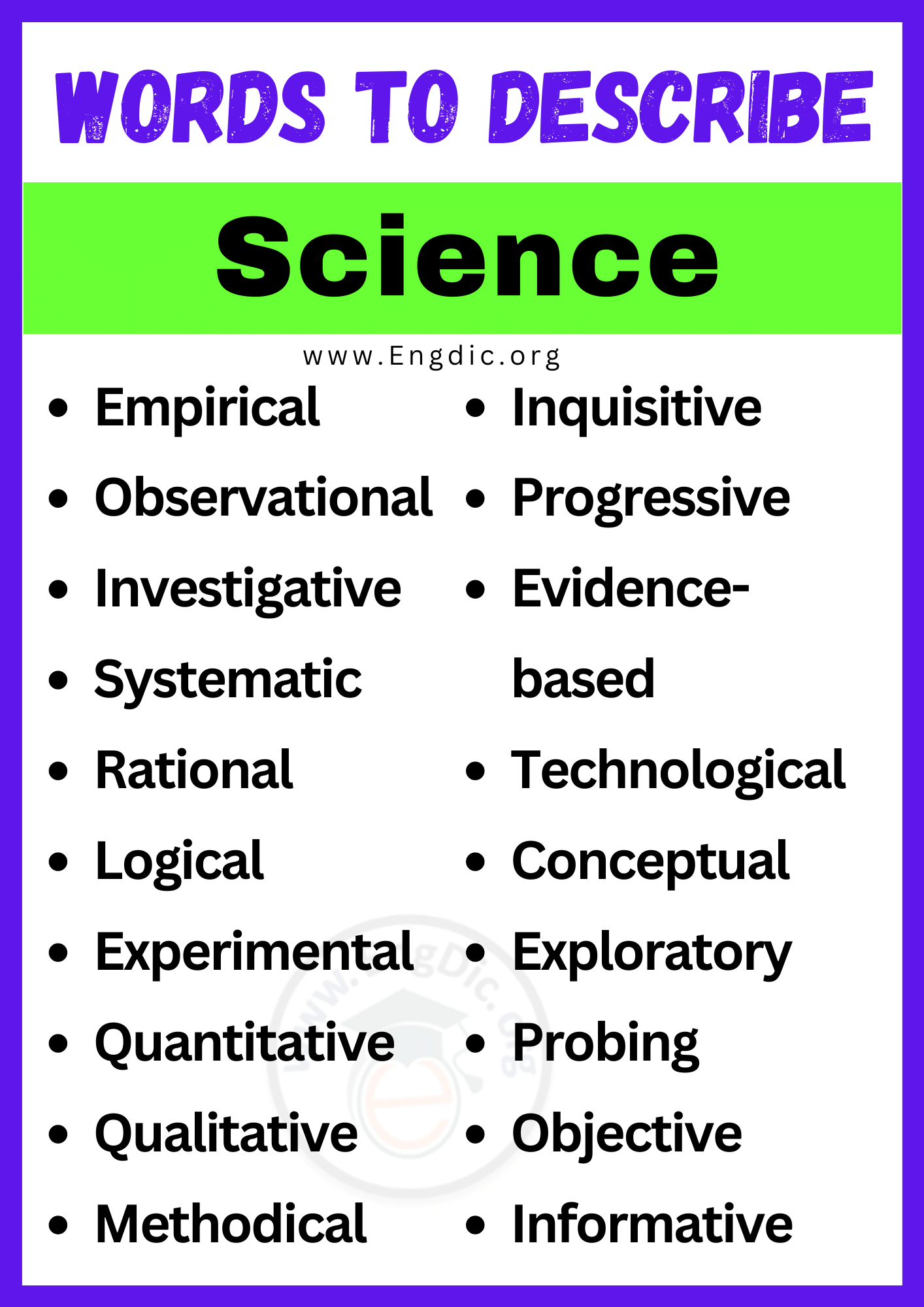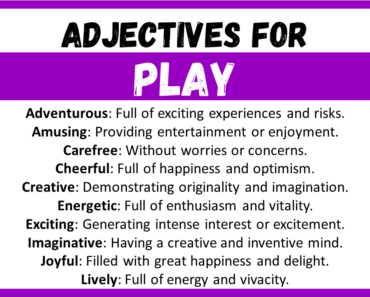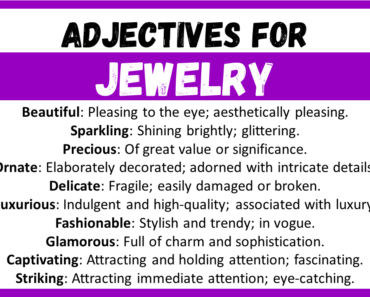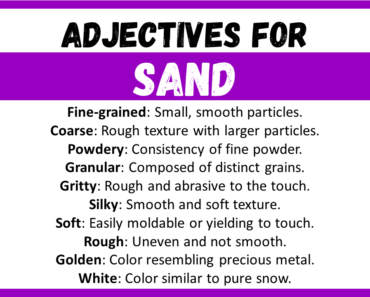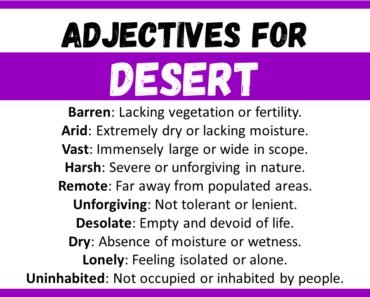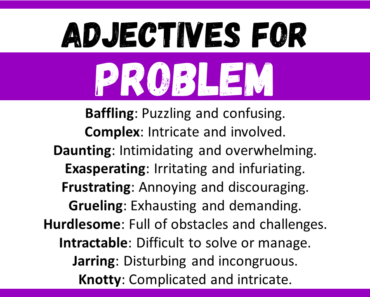Science, in simple terms, is the systematic study of the natural world and its phenomena, aiming to understand the laws governing the universe. It encompasses a diverse range of disciplines, from biology and chemistry to physics and astronomy. Words to describe science can be fascinating, illuminating, and awe-inspiring. They capture the essence of exploration, curiosity, and knowledge-seeking. These words evoke images of experiments, discoveries, and breakthroughs that have shaped our understanding of the world and propelled humanity forward. Join me on this journey as we explore the captivating vocabulary that describes the marvels of science.
Adjectives for Science
Here are the 20 Most Popular adjectives for science:
- Empirical
- Observational
- Investigative
- Systematic
- Rational
- Logical
- Experimental
- Quantitative
- Qualitative
- Methodical
- Inquisitive
- Progressive
- Interdisciplinary
- Evidence-based
- Technological
- Conceptual
- Exploratory
- Probing
- Objective
- Informative
Adjectives for Science and Technology:
- Innovative
- Cutting-edge
- Revolutionary
- Advanced
- Futuristic
- High-tech
- Scientific
- Technological
- Groundbreaking
- State-of-the-art
Adjectives for Science Students:
- Inquisitive
- Intelligent
- Curious
- Analytical
- Diligent
- Enthusiastic
- Resourceful
- Critical-thinking
- Perceptive
- Knowledgeable
Adjectives for Science Class:
- Engaging
- Interactive
- Informative
- Hands-on
- Collaborative
- Stimulating
- Educational
- Thought-provoking
- Comprehensive
- Practical
Adjectives for Science Fiction:
- Imaginative
- Futuristic
- Extraterrestrial
- Mind-bending
- Speculative
- Otherworldly
- Dystopian
- Adventurous
- Unconventional
- Technologically-advanced
Words to Describe Science with Meanings
- Empirical: Based on observation and experience.
- Observational: Relating to careful watching and recording.
- Investigative: Involved in thorough examination and exploration.
- Systematic: Methodical and organized in approach.
- Rational: Logical and reasonable in thinking.
- Logical: Following a consistent and coherent sequence.
- Experimental: Involving practical tests and trials.
- Quantitative: Measurable and expressed in numbers.
- Qualitative: Concerned with qualities and characteristics.
- Methodical: Conducted in a systematic and ordered manner.
- Inquisitive: Curious and eager to learn.
- Progressive: Advancing forward or developing continuously.
- Interdisciplinary: Involving multiple fields or disciplines.
- Evidence-based: Supported by factual information and evidence.
- Technological: Relating to technology and its advancements.
- Conceptual: Relating to abstract ideas and theories.
- Exploratory: Aimed at discovering or investigating new areas.
- Probing: Inquiring deeply into a subject.
- Objective: Unbiased and impartial in analysis.
- Informative: Providing knowledge and useful information.
Example Sentences for Science Adjectives
- The empirical evidence supports the theory.
- Observational studies show promising results.
- The detective conducted an investigative interview.
- She followed a systematic approach to problem-solving.
- His argument was rational and well-reasoned.
- The sequence of events was logical and coherent.
- The scientist conducted experimental trials to test the hypothesis.
- The study collected quantitative data for analysis.
- The researcher conducted qualitative interviews to gather insights.
- She followed a methodical procedure in the lab.
- The inquisitive student asked thought-provoking questions.
- Our society has made progressive advancements in technology.
- The project involved an interdisciplinary team of experts.
- The decision was based on evidence-based research findings.
- The company is known for its technological innovations.
- The lecture discussed conceptual frameworks in physics.
- The expedition aimed at exploratory research in the rainforest.
- The psychologist used probing questions to uncover hidden motives.
- The judge remained objective throughout the trial.
- The documentary provided informative insights into climate change.
Explore More Words:
FAQ’s
How to describe science in writing?
Science can be described in writing by using precise and clear language to convey the systematic study of the natural world, its phenomena, and the pursuit of knowledge through observation, experimentation, and analysis.
What makes good science?
Good science is characterized by rigorous methodology, unbiased observation, reproducibility of results, logical reasoning, and adherence to ethical standards, leading to reliable and valid conclusions that contribute to the advancement of knowledge.
What is excellent in science?
Excellence in science is achieved through groundbreaking discoveries, innovative research methodologies, transformative theories, significant contributions to scientific knowledge, and the ability to inspire and influence the scientific community and society as a whole.
